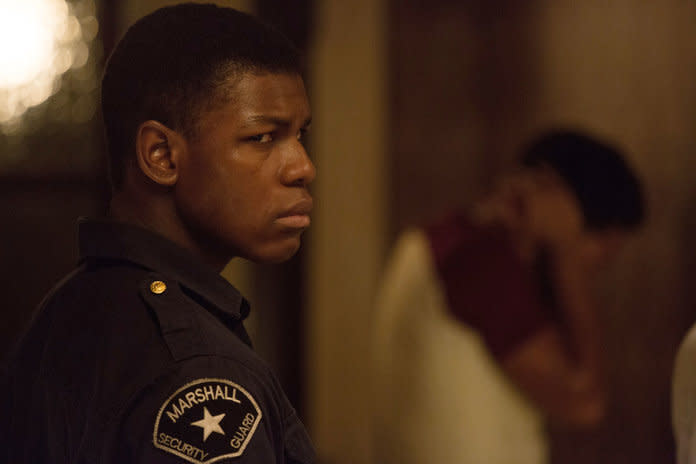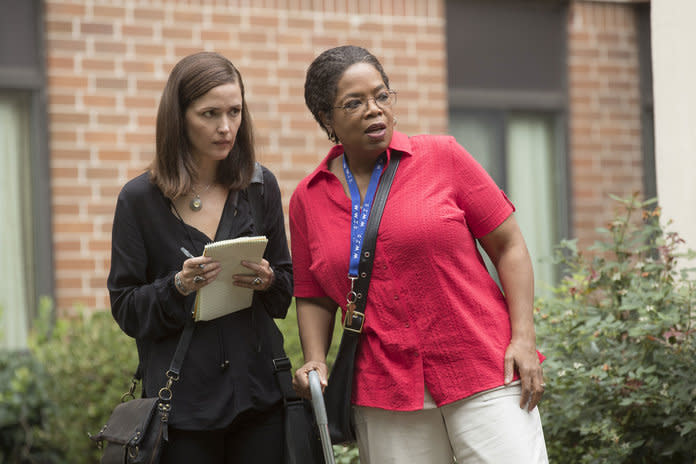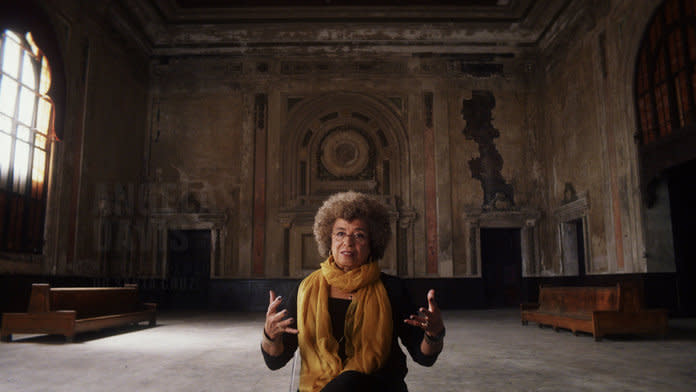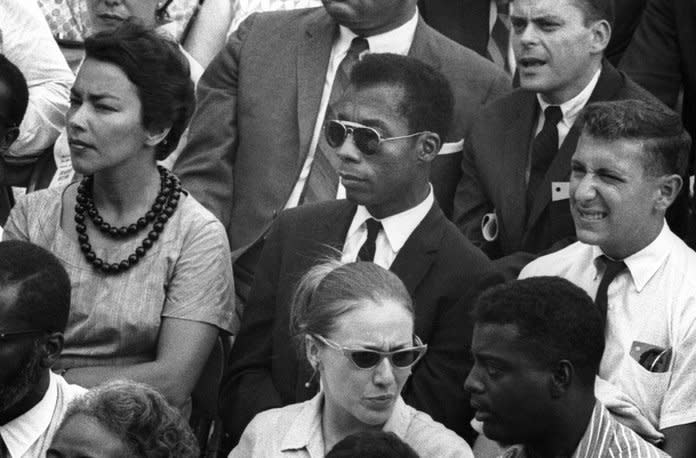6 Movies to Watch to Understand the Black Experience in America
Contrary to popular belief, Black Americans’ struggle did not end with the passage of the Equal Rights Act of 1964. Racism has not been solved. The lingering effects of white supremacy have continued to wreak havoc on the black community. As Black history month comes to a close, and we revisit shameful historical moments in this country like slavery and the Civil War, through the lens of life in 2019, the shame of today is exceptionally relevant. Unfortunately, too many of us don't even know the half of it.
According to Pew Research Center, only 58 percent of Americans see racism as a significant issue in our society, and we see race quite differently from one another. While 92 percent of black Americans see white Americans as benefiting from advantages they don’t have, only 42 percent of white people feel the same. Meanwhile, The number of hate crimes in America has been steadily rising since 2016. Black Americans know these injustices aren’t a new development — they’re a continuation of a legacy of anti-black bias and racism that’s ingrained in us.
Whether we know that or not depends largely on our race, or the version of American history we were taught growing up. If you aren't black, and didn't have an exceptionally progressive history teacher in your formative years, there's a good chance you could stand to brush up on a few things.
For some more modern-day illustrations of the ways race impacts people's lives and experiences in this country, or a refresher before Black History Month is over, the films below depict several aspects of the Black experience that contextualize how we got where we are today. Whether or not the Oscars are #sowhite this year doesn’t mean the movies you chose to stream have to be.
Detroit

Noteworthy cast members: Will Poulter, Leon Thomas III, Tyler James Williams, Samira Wiley and many others.
The movie Detroit personifies the fear of many black people — leaving home in pursuit of a good time and never making it back. It’s also based on a true story: The Algiers Motel incident.
During Detroit's 1967 12th Street Riot a report of a gunman left three young black men dead — Carl Cooper, Aubrey Pollard, and Fred Temple — and many others beaten. The officers in the case were ultimately acquitted. The film uniquely portrays the emotional trauma racism can inflict, and reminds us that innocence isn’t enough to alleviate fear or danger for young black men. As a warning, this film might be emotionally distressing for people of color to watch; I left the theater enraged.
For more police brutality discussion: Fruitvale Station starring Michael B Jordan.
RELATED: Celebrities Reflect on Four Years of #OscarsSoWhite
Dark Girls

Noteworthy cast members: Viola Davis
While racism leaves all black women at risk for marginalization, harassment, and stereotyping, colorism means that the darker one is, the more likely she is to receive negative treatment.
The documentary Dark Girls sheds light on the variety of ways darker hued black women experience criticism or assumptions from people both inside and out of the black community, obstacles with dating, and overall self-esteem issues because of the way others react to their looks. It also covers the ways colorism impacts beauty norms, conversations around hair texture, and the perception of darker complected women's appearances.
For more conversations on Black women's intracultural experiences: "Good Hair” and other Dubious Distinctions
The Immortal Life of Henrietta Lacks

Noteworthy cast members: Oprah Winfrey, John Beasley, Lisa Arrindell Anderson, Rocky Carroll, and Leslie Uggams
In recent years, more attention has been brought to the way the medical system fails black people and in turn puts their lives at risk. Chances are, you’ve been horrified by the Tuskegee Experiment, which highlights some of the darkest moments in American medical history. But there are many other stories, like that of Henrietta Lacks, which showcase the way black Americans have historically been dehumanized and left uninformed during their own medical care.
In 1951, Henrietta Lacks went to the doctor with concerns related to vaginal bleeding and was found to have cervical cancer. But her diagnosis was too late and she died within months, unaware that doctors had harvested her cells during a biopsy and used them to study cancer and develop treatments for years to come. In addition to not having consented to any use of her cells, she would never know the impact her DNA would go on to have in the medical community.
Oprah Winfrey delivers a captivating performance as Henrietta’s youngest child, who is experiencing the emotional highs and lows of hearing the painful details of her mother’s condition and treatment in the visual adaptation of Rebecca Skloot’s book — Skloot (played by Rose Byrne) is the real-life journalist who uncovered the story of Henrietta, and what came to be known as the “HeLa” cells, to which we owe untold advances in cancer care and treatment.
Black women are still dying at disproportionate levels due to cancer and other chronic health conditions and fighting for more transparent medical practices. The Immortal Life serves as a reminder we haven’t made nearly enough progress toward humanizing Black patients.
For more conversations on institutional racism in health: Miss Evers' Boys starring Alfre Woodard and Laurence Fishburne.
RELATED: Meet the Music Mogul Bringing Motown Back
13th

Noteworthy cast members: Newt Gingrich, Angela Davis, Van Jones and many more.
This excellent documentary will leave you wondering why we say slavery ended with the ratification of the 13th Amendment.
In less than two hours, Ava Duvernay takes us on a journey through the Prison Industrial Complex, via interviews with some of the leading voices in a variety of fields, and presents a convincing case for why the 13th Amendment transformed but did not end slavery.
13th challenges us to think critically about the increased risks black Americans face for incarceration based on a variety of data as well as real people’s stories. You'll be left wondering how we use the term “innocent until proven guilty” when so many people are treated as guilty by default.
For more conversations on race and criminal justice: Let It Fall: Los Angeles 1982-1992
Moonlight

Noteworthy cast members: Mahershala Ali, Andre Holland, and Janelle Monae
Moonlight is a multi-award-winning film — including bringing home a win for Best Picture at both the Academy Awards and the Golden Globes — that sheds light on the struggle of identity development faced by black men, and particularly queer black men. It follows the coming-of-age story of Chiron, a young black boy who begins questioning his sexuality early on. Unlike other depictions of black male experiences, Moonlight illustrates identity intersections that create obstacles for Chiron as he grows.
In addition to figuring out his sexuality, Chiron battles poverty, having a drug-dependent mother, and decades of bullying. He finds a role-model in Juan, who teaches him to never let anyone else identify him but is conflicted after discovering his role model is his mother’s drug dealer. Chiron has much to grapple with centered around this crucial — if complicated — mentorship relationship. This film is important for many reasons: it explores the ways trauma and fear of vulnerability can lead to a wide range of performative expressions of masculinity. It also serves as a necessary depiction of black male queerness.
For more conversations on Black queer experiences: Naz & Maalik
I'm Not Your Negro

Noteworthy cast members: Voice of Samuel L. Jackson
James Baldwin was an activist, playwright, and novelist who had a skill for covering polarizing topics like race and racism in the United States. He has often been shamefully unacknowledged in conversations around Black History Month icons, so here he is.
Upon his death, Baldwin’s unfinished manuscript Remember This House was adapted to create I’m Not Your Negro, in which he addresses everything for his experiences as a black expat (he lived in France), and the ways racism dehumanizes people on both sides of it. I’m Not Your Negro, a documentary film in which Samuel L Jackson narrates Baldwin's manuscript, questions everything we’ve been taught about the origins of race and racism.
One of the most alarming things about this film is the timelessness of the analysis Baldwin left behind. It’s impossible not to have a least one “aha” moment while watching.
For more on Civil Rights: The Black Power Mixtape



